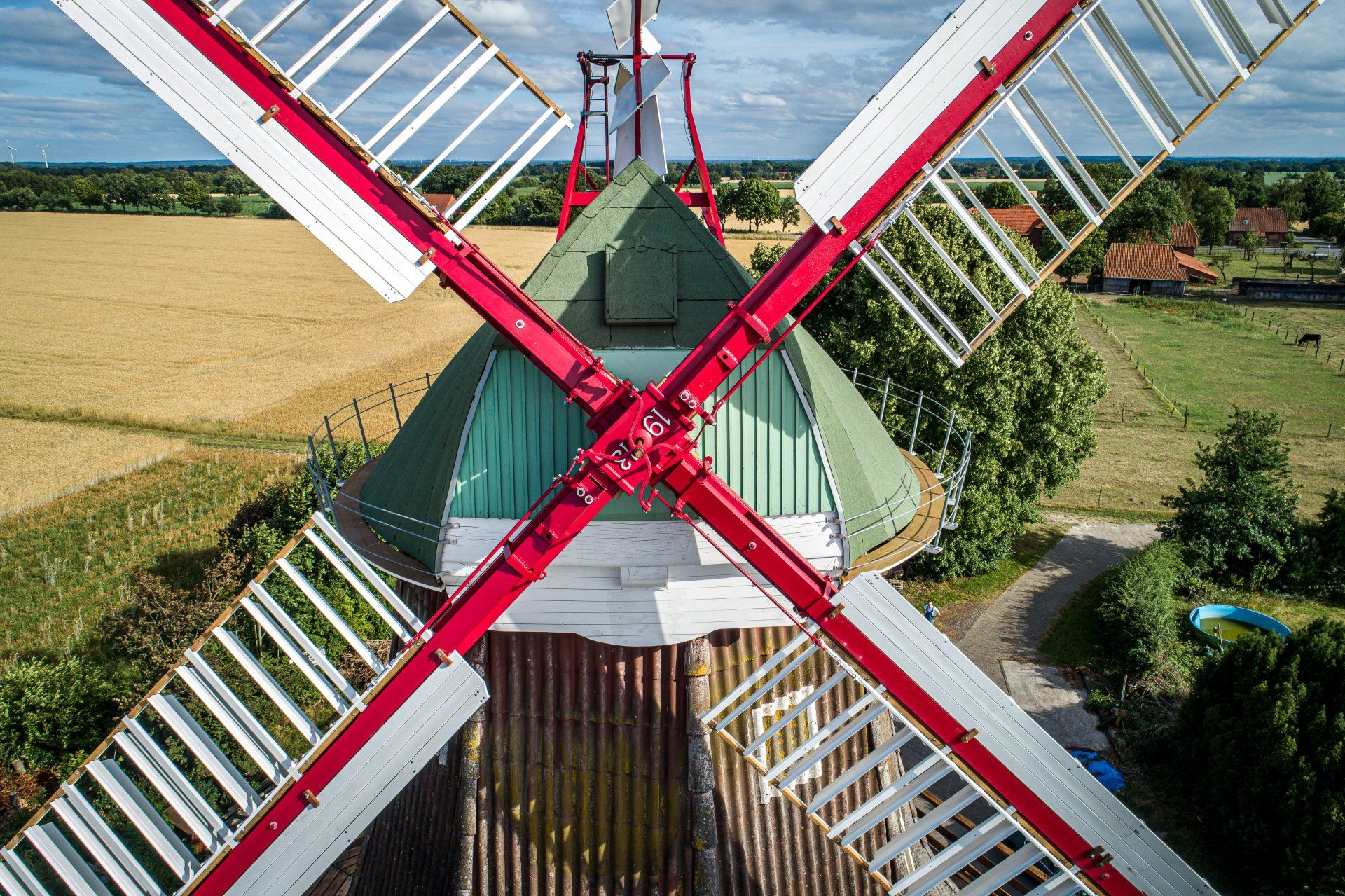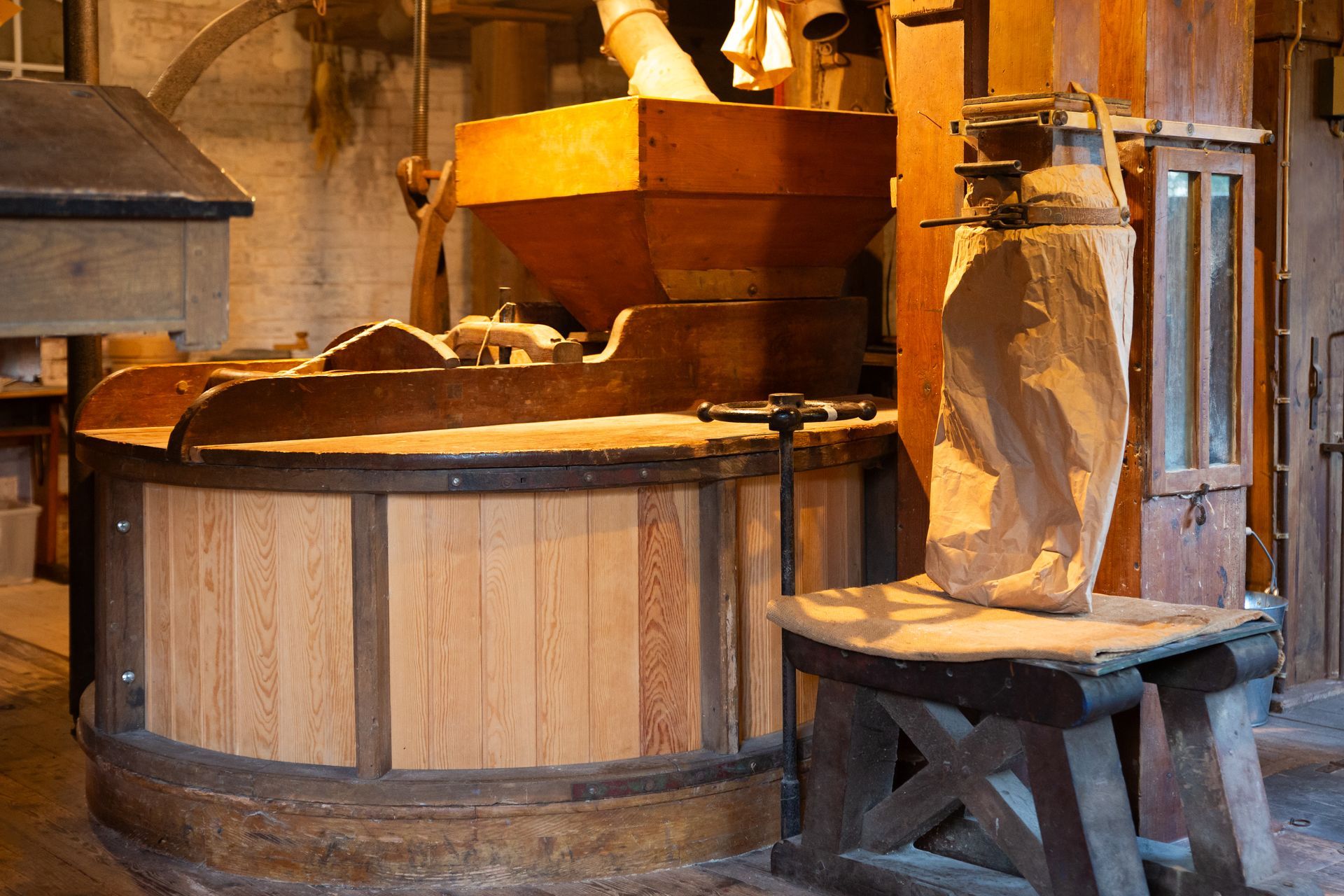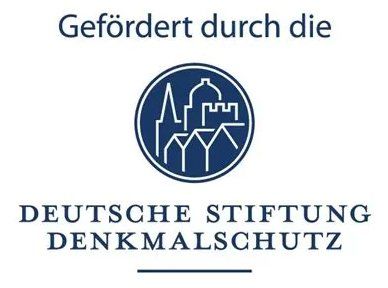Here Europe is investing in rural areas with the measure:
Operating concept for the Labbus windmill
Objective of theAccording to the statutes, the Mühlenverein Labbus eV is:
"... the preservation, restoration, maintenance and promotion the listed windmill in Labbus near Sulingen. The windmill as a cultural asset should be made accessible to the public... This includes in particular the maintenance and presentation of the customs associated with the mill industry, for example in the context of mill and monument days, mill tours to provide insights into the culturally and historically significant mill operation."
Construction phase 1 of the mill restoration (restoration of the mill cap) was completed in April 2020. Construction phase 2, the installation of the mill wings and gallery, is expected to be completed by mid-2022. The parallel construction phase 3 includes the overhaul and repair of the mill technology and is already about 80% completed. In the foreseeable future, the mill will be Rotatable and operational cultural and industrial monument introduce.
In addition to the association's own funds and private donations, the restoration project is financed by grants from the German Foundation for Monument Protection, the European Fund for Rural Development, the Bingo-Lotto Environmental Foundation and the city of Sulingen.
To
Implementation of our goal
The following measures are planned:
- Guided tours for smaller and larger groups are still offered, both planned in advance and on spontaneous request. Our expert millers accompany those interested through the mill and explain the history and technology in a way that is suitable for visitors.
- Show operation with the production of the products authentic to this mill using wind power and following the procedures that were common in the past. The planned production volume is around 4-8 tons per year. This amount is sufficient to demonstrate and experience the production processes in the mill with the wind-powered machines.
- Products typical for this mill and once important for the population such as
Animal feed (preferably small animal feed),
Baking bran and wholemeal flour are created and distributed to small customers, visitors, neighbors and well-wishers. The requirements of non-profit status are taken into account.
- Through these measures, the Mill Association meets the conditions for the recognition of “artisan milling in wind or water mills” as
living cultural heritage At the beginning of December 2018, the craft mill was recognized as an intangible cultural heritage of humanity by the expert committee of the German UNESCO Commission and the Conference of Ministers of Education and Cultural Affairs and was added to the nationwide list of
UNESCO The Labbus mill would be the only windmill in the Diepholz district that is recognized by UNESCO.
- Through these measures, the Mill Association meets the conditions for the recognition of “artisan milling in wind or water mills” as
living cultural heritage At the beginning of December 2018, the craft mill was recognized as an intangible cultural heritage of humanity by the expert committee of the German UNESCO Commission and the Conference of Ministers of Education and Cultural Affairs and was added to the nationwide list of
UNESCO The Labbus mill would be the only windmill in the Diepholz district that is recognized by UNESCO.
- The regular
Rotating the mill wings When the wind is favorable, the mill can also be opened outside of regular opening times, even when the mill is not currently in production or being demonstrated in any other way. This attracts visitors, enriches the townscape and, above all, helps to avoid damage to the mill's technology.
- In order to ensure safe wind operation and to avoid technical damage and storm damage caused by air turbulence and gusts, the
Green care adapted to the needs on site.
- The mill should
School classes and kindergartens
on the topic “from grain to bread” or as part of history or technology lessons.
- The mill is to be
Teaching mill
serve in the training of volunteer millers, e.g. as part of the “Voluntary Miller” course run by the Lower Saxony Bremen Mill Association with the Diepholz District Adult Education Center and other educational institutions. The mill is an excellent training facility for miller apprentices due to the future operational capability of the technical equipment, which is exceptionally versatile for historic mills.
- Also
civil marriages
should continue to take place in the wedding room of the mill. If the wind is favorable, the mill can rotate. This also presents the mill as a valuable cultural asset; the mill's operations are not restricted by the weddings.
- The annual
Mill Festival
on Whit Monday as part of the German Mill Day will continue to take place. Mill demonstrations, catering, vintage car exhibitions, cultural events and a farmers and crafts market are intended to attract visitors and exhibitors to Sulingen and the mill. Regular participation in the
Open Monument Day
on the second Sunday in September is also planned.
A standing mill is a dead mill. Therefore, true to our motto “a breath of fresh air for the Labbus windmill”, we strive for a living, accessible mill that offers the public across all generations the opportunity to
the traditional milling trade, technical development, agricultural history and sustainable monument preservation
to experience up close.
- The annual
Mill Festival
on Whit Monday as part of the German Mill Day will continue to take place. Mill demonstrations, catering, vintage car exhibitions, cultural events and a farmers and crafts market are intended to attract visitors and exhibitors to Sulingen and the mill. Regular participation in the
Open Monument Day
on the second Sunday in September is also planned.
- Also
civil marriages
should continue to take place in the wedding room of the mill. If the wind is favorable, the mill can rotate. This also presents the mill as a valuable cultural asset; the mill's operations are not restricted by the weddings.
- The mill is to be
Teaching mill
serve in the training of volunteer millers, e.g. as part of the “Voluntary Miller” course run by the Lower Saxony Bremen Mill Association with the Diepholz District Adult Education Center and other educational institutions. The mill is an excellent training facility for miller apprentices due to the future operational capability of the technical equipment, which is exceptionally versatile for historic mills.
- The mill should
School classes and kindergartens
on the topic “from grain to bread” or as part of history or technology lessons.
- In order to ensure safe wind operation and to avoid technical damage and storm damage caused by air turbulence and gusts, the
Green care adapted to the needs on site.









